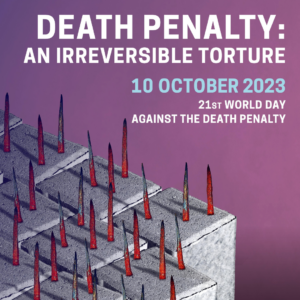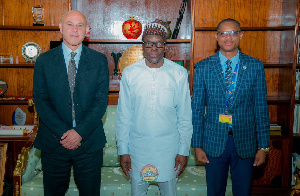
Time To Abolish the Death Penalty, Taipei Times, 4 October 2016
- DPP in the Media
- 6 Oct 2016
By Keir Starmer and Saul Lehrfreund.
The execution of Cheng Chieh (鄭捷) earlier this year brought the total number of executions in Taiwan to 33 since 2010. Taiwan’s policy on capital punishment during this period has attracted international criticism affecting its reputation. It is also contrary to the worldwide trend to restrict the use of the death penalty and to reduce the number of executions.
About 75 percent of nations around the world have abolished capital punishment in law and practice, only 39 nations have carried out an execution in the past 10 years; most of them very infrequently. Last year, only 25 nations conducted executions and these nations belong to an isolated minority of which only three were liberal democracies. Only a dwindling number of nations still defy the majority view that the death penalty inevitably violates the right to life and the prohibition on cruel, inhuman and degrading punishment.
We acknowledge that replacing the death penalty with alternative sanctions is a matter for Taiwan to decide on its own. However, in 2009, Taiwan took the commendable step of incorporating the International Covenant on Civil and Political Rights (ICCPR) into domestic law with the legal consequence that Taiwan has now voluntarily accepted human rights obligations, which bear directly on the use of capital punishment.
In particular, the scope and application of the death penalty is strictly limited so that fair trial provisions must be adhered to without exception and other provisions guaranteeing the right to seek clemency must also be respected in capital cases. Critically, Article 6 means that Taiwan must be on an irrevocable path toward complete abolition of the death penalty in the foreseeable future.
Public opinion is often cited as a reason to retain the death penalty. However, as on many other issues, human rights tempers public opinion, especially where public opinion might be based on fear or misconception about the assumed deterrent effect of capital punishment. The rule of law and respect for human rights should always drive decision making on issues such as the death penalty; and political leadership is crucial.
Experience shows that, over time, popular attitudes change and tend to accept the political lead and ensuing political processes. Pressure for the death penalty to be imposed and for its enforcement by executions can only continue if the issue is not removed from the political agenda.
That was our experience in the UK prior to abolition of the death penalty more than 50 years ago. Since the UK government committed itself to the complete abolition of capital punishment and not to reintroduce it, the issue has been settled and there is now no longer contentious debate in our Parliament or in the media on the reintroduction of capital punishment even for the gravest crimes, including acts of terrorism.
More broadly, the great increase in the number of nations that have abolished the death penalty has not been achieved as a result of demand or even tacit support from the majority of the general public. Political leadership — often from presidents and judicial support have been key to replacing the death penalty with alternative sanctions. The task of the government, the courts and responsible media is to inform and lead the general public to appreciate and then to accept the human rights case for replacing the death penalty.
A significant reason, in the public mind, for retaining the death penalty is the assumed general deterrent effect that a sentence to death followed by an execution will have on all persons who might contemplate committing a “capital” offense.
The assumption that the death penalty has such a general deterrent effect is not supported by evidence from other nations.
There is convincing evidence that the criminal justice process, irrespective of the nation, is susceptible to the possibility of human error and an overhasty response to grave crimes.
Recent examples from Japan and the US, as well as cases in the UK both prior to and after abolition, prove that errors would persist, despite some of the best resourced criminal justice systems being in place. Ultimately, criminal justice is fragile and wherever the death penalty is imposed there is a real risk that innocent people will be convicted and executed. This cannot be ignored.
Supporters of capital punishment point to its tradition in specific culture, but culture is not static. Capital punishment and even torture historically played a role in most abolitionist nations, including the UK.
Abolition of the death penalty is not incompatible with electoral democracy and moreover, the replacement of the death penalty with a humane and flexible system of imprisonment is regarded as the standard bearer for all nations that purport to respect human rights norms.
If Taiwan did take bold steps to abolish the death penalty, we believe this would quickly become a source of pride cementing Taiwan’s position as a beacon of democracy, freedom and human rights in Asia. This would undoubtedly enhance Taiwan’s international reputation, distinguishing itself from the minority of nations that still execute their captive citizens.




















